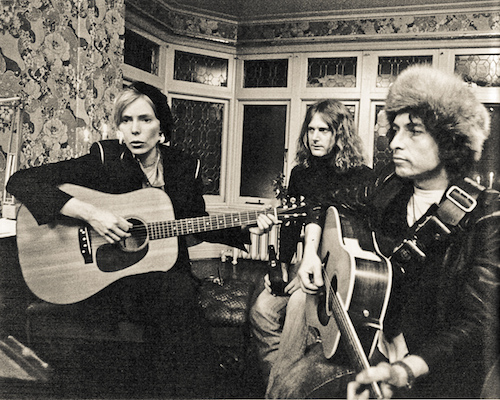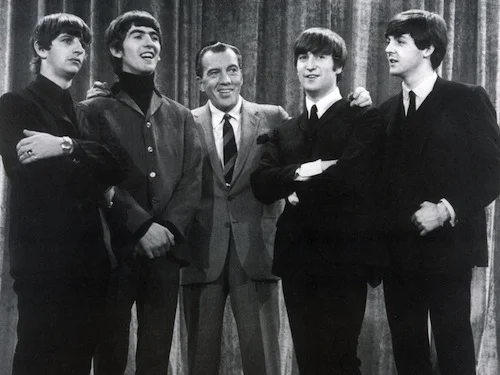Becoming a Songwriter, Part 3

I have a book on songwriting about halfway completed. Andi and I thought it might be fun and hopefully fruitful to share a few chapters with Art House America Blog readers.
—Charlie Peacock
Great understanding drives great songwriting. The first step to greater understanding is to know yourself, to have some workable sense of the fullness of your human identity. Discover it, understand it, and begin to trust it. The second, equally important step is to have an increasingly greater understanding of your neighbors (here, there, everywhere) — of the human condition and how people deal with their humanity. The human condition is simply the ups and downs of being human. It involves glory and shame, justice and injustice, righteousness and sin, life and death, success and failure, love and hate, and much more. People come at the subject of the human condition with many agendas and presuppositions about what constitutes reality. This is not the forum to settle any of that. But understanding the human condition in some part, large or small, is essential to songwriting.
This sort of discussion bleeds into the fields of psychology, sociology, epistemology, and more. Knowing why people behave the way they do, how they know what they know, how cultures form, and how society shapes the life of a citizen are all major intellectual tools in the songwriter’s kit.
People in every vocation are sorting out their identity to some degree. Some know themselves well and have a strong sense of identity. They are comfortable in their own skin, and because they are, they can help others be. Yes, songwriting can do that. Great songwriting has the ability to help people feel more fully human and not less.
Everyone is busy from birth trying to figure out their own behavior and how to live with the behavior of others. Isn’t this the stuff of so many love torn and scorned songs? Adele’s lyric is “we could have had it all,”not “we did have it all.”Imperfection, bad behavior, missed opportunities, foolish and evil ways are at the foundation of many of the greatest human stories.
Some people are just starting down this path of understanding what makes themselves and others so frustratingly complex and capable of the great and gruesome. They are discovering who they are, what they know, and where they come from — essentially learning everything that makes them different from or similar to everyone else. This is complex. I’m talking about knowing yourself specifically, having insight into your personality, family of origin, gifts and talents, passions, character strengths and defects, prejudices, and presuppositions (and much, much more). I’m also getting at human identity in general. For example, what exactly is going on with us as we inhabit this tiny, carbon-based planet in the Milky Way galaxy? Are we fully autonomous beings or do we belong to each other in some familial way? Are we on our own here? Or are we connected to a higher power, a big-bang first cause, a God, or gods from one of the many religions we devote ourselves to? And just what are we supposed to be doing between birth and death? Is our primary vocation making or taking, creating or consuming? If you have some ready answers to these questions, then you’ve learned or formulated some ideas about human identity, your neighbors near and far, and even human destiny.
Though you can’t avoid humanity at its best and worst, not everyone is pondering the human condition, trying to answer why the same species that created Handel’s “Messiah” put people in space and sent millions of dollars to sub-Saharan Africa to fight HIV/AIDS, but also persists in killing one another en masse.
I get it. People are trying to make life work at the most basic level, not pick it apart with critical analysis. Yet many people, and especially artists, have wrestled with why people are the way they are. Even if you’ve never thought through the question in a serious way, I’m confident you’re serious about it. I bet at least once you’ve asked an irritating friend, child, or spouse: “What is wrong with you?”
This is a fair question, but not the only one worth asking. “What is right with you?”is just as important — even better when phrased as a statement: “There is much right with you.”To understand the human condition is to possess ongoing, ever-evolving answers to both questions. To write great songs you need to know what is wrong with people and what is right.
Note: It takes time to gather these kinds of answers. It takes even more time for the information to become wisdom. When it comes right down to it, a wise song is a lasting song. It could be about young love, abusive relationships, loneliness, or spiritual malaise. If the lyric is wise and the music is the perfect compliment, then the song is good for people and planet. Do you want to be in the company of people who make music for the good of people and planet, or do you simply want to succeed monetarily at songwriting and maybe have only a handful of such successes? Not totally a rhetorical question, but an easy choice I think.
At this point, if you’re confused with this essay, I wouldn’t hold it against you at all. You might be thinking: Am I actually reading an essay about songwriting? All is well. I promise you are. In my two previous installments on songwriting I used the phrases “the story you are born into” and “peer influence” and “musical choices you make when you’re coming of age.” And now with human identity, and human condition, you might wonder again what all this has to do with songwriting. A lot, I can assure you, especially if you want to be in the company of great, long-lasting songwriters who understand these connections and take them seriously.
Here’s a very short, multi-generational list of songwriters that reveal this level of understanding: Peter Gabriel, Joni Mitchell, Tom Douglas, Sara Groves, Randy Newman, Bob Dylan, Elvis Costello, Gretchen Peters, Jon Foreman, Trent Reznor, Zach Williams (The Lone Bellow), Marcus Mumford (Mumford & Sons), Bruce Cockburn, Joy Williams, Paul Simon, and Bono. These songwriters are in good company with other artists as well, such as painter Makoto Fujimura, filmmaker Terrence Malick, and writer Marilynne Robinson.
After my many years of songwriting, as well as analyzing and cataloging the uniqueness of great songs and songwriters, it’s my deep conviction that great understanding— call it insight and wisdom— is the special sauce ingredient to extraordinary, lasting songs. Not just the lyric either. Songwriters who feel their humanity and have great empathy also create emotive, evocative music that fits hand in glove with their lyric.
In the Torah, the Jewish scripture, human identity is rooted in God: “Then God said, ‘Let us make man in our image, in our likeness, and let them rule over the fish of the sea and the birds of the air, over the livestock, over all the earth, and over all the creatures that move along the ground. So God created man in his own image, in the image of God he created him; male and female he created them.’”
Of course, questions of human identity and origin run deep and are not without much disagreement, even hostility. That’s not my game here. But I do want you to consider the concept of identity. What do you believe about identity? What have you sorted out so far? Your identity has a complexity to it for sure, but not so complex that it can’t be understood at a workable level. Whether you believe you have a soul, a personality, or that you are a random blip in a succession of universes, within your person is the very you of you. I’m describing the you that is only you and no one else on the planet. You know you’re not me or your sister or brother. You are you. You have a mind and emotions that feel, think, and imagine. You have a body that has mobility and senses. You have a gender. You’re able to communicate in a number of ways — non-verbally through expressions, with language, with your whole body, and of course with music. Creativity, and specifically songwriting, ought to be the natural outworking of the whole person simply being what he or she is, human.
All your senses, abilities, and faculties help you navigate life. It’s via the body, mind, emotions, and senses that you encounter all the people you meet, and the places you go and dwell. It’s through the fullness of your person that you bump into life and its multitude of stories. You interpret these stories, you imagine others, and you create music that is evocative of what you encounter in the world. Talent, skill, and imagination take all of this and shape it into songs. Songwriting is an expression of your identity, the outworking of being you, a human being working from a place on the planet. Remember, art flourishes when linked to people and place. And how could it be any different? Be where you are. See where you are. Write what you see and hear, feel and know.
Please read a note from the Art House America Board about the future of the blog.



















